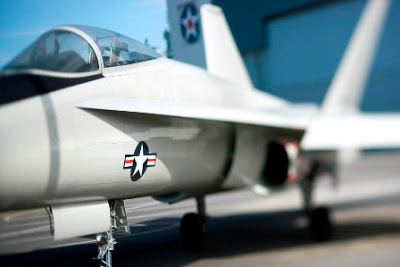Report forecast the global flight management
systems (FMS) market to grow at a CAGR of 7.24% during the period 2016-2020.
FMS is a major component, which is used to operate,
control, and monitor the aircraft without continuous supervision by the pilot
to enhance its capabilities. It is a specialized computer system that automates
a wide variety of in-flight tasks, reduces the aircraft weight and
information-management workload, enables power saving, and allows easier
interaction with air traffic control to avoid accidents.
It reduces overall operating costs and results in
the faster training of new pilots. FMS also improves the functionality and
accuracy along with enhanced situational awareness and safety of both the pilot
and the aircraft. In addition, advanced touchscreen displays for FMS are
gaining popularity in commercial aircraft market.
The report covers the present scenario and the
growth prospects of the global FMS market for 2016-2020. To calculate the
market size, the report considers the revenue generated in the overall market.
The market is divided into the following
segments based on geography:
- Americas
- APAC
- EMEA
According to the report, a key growth driver for
this market is the improvement in safety standards. As aircraft operations
become more dependent on FMS, flight crew and pilots must be trained to deal
with possible failures. In 2008, United Airlines Flight 731 experienced a
glass-cockpit blackout, where all communications to radios, transponders,
traffic alert and collision avoidance system (TCAS), and attitude indicators
were lost, and half of the electronic centralized aircraft monitor (ECAM)
displays failed. However, the presence of backup analog displays for critical
flight instruments such as the airspeed indicator and altimeter enabled the
pilots to land the aircraft successfully at Newark Airport without radio
contact.
Further, the report states that one challenge that
could hamper market growth is the safety hazards related to digital cockpit
systems.
Flight Management Systems (FMS) Market 2016-2020,
has been prepared based on an in-depth market analysis with inputs from
industry experts. The report covers the market landscape and its growth
prospects over the coming years. The report also includes a discussion of the
key vendors operating in this market.
key players in the global flight management systems
(FMS) market: Honeywell International, Lufthansa Systems, Rockwell Collins,
Thales Group, and Universal Avionics.
Other Prominent Vendors in the market are: BAE
System, Esterline Technologies, GE Aviation, Jeppesen, and Navtech.
Market driver
- Improved safety standards
- For a full, detailed list, view our report
Market challenge
- Safety hazards of digital cockpit systems
- For a full, detailed list, view our report
Market trend
- Emergence of automatic ground collision avoidance system
- For a full, detailed list, view our report
Key questions answered in this report
- What will the market size be in 2020 and what will the growth rate be?
- What are the key market trends?
- What is driving this market?
- What are the challenges to market growth?
- Who are the key vendors in this market space?
- What are the market opportunities and threats faced by the key vendors?
- What are the strengths and weaknesses of the key vendors?
Spanning over 61 pages and 33 Exhibit “Global
Flight Management Systems Market 2016 - 2020” report covers Executive
summary, Scope of the report, Market research methodology, Introduction, Market
landscape, Global aerospace and defense supply chain system, Global aerospace
and defense value chain system, Market segmentation by aircraft type,
Geographical segmentation, Market drivers, Impact of drivers, Market
challenges, Impact of drivers and challenges, Market trends, Vendor landscape,
Appendix.
For
more information Visit at: http://mrr.cm/Jn7
Find all Aerospace Reports at: http://www.marketresearchreports.com/aerospace

No comments:
Post a Comment